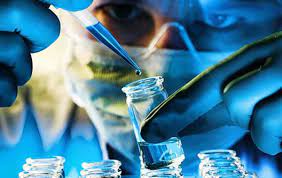In a rapidly changing world, international partnerships are crucial to tackling global health crises and advancing scientific innovation. Among these partnerships, the collaboration between the United States and Indonesia in biotechnology offers immense promise for reshaping healthcare, particularly in addressing the growing challenge of diabetes. By leveraging cutting-edge technologies such as exosomes, both nations are paving the way for breakthroughs in diagnostics, therapeutics, and drug delivery systems that could have a lasting impact on healthcare both locally and globally.
Tackling Indonesia's Growing Diabetes Epidemic
Diabetes has become a significant health concern in Indonesia, where the number of cases continues to rise. In 2023, the prevalence of diabetes among Indonesians aged 15 and above reached 11.7%, affecting over 19 million adults. With this growing health crisis, the economic impact is equally alarming. The total direct medical costs of type 2 diabetes mellitus (T2DM) in Indonesia were estimated at $576 million in 2016, and the costs are projected to increase by 33% by 2045. Addressing this challenge requires innovative, sustainable, and cost-effective solutions.
The collaboration between the U.S. and Indonesia offers an opportunity to explore transformative healthcare solutions. Programs such as the USAID MOMENTUM initiative, which focuses on maternal and newborn health, exemplify the potential for joint efforts to strengthen healthcare systems and create scalable solutions. Similarly, the U.S.-Indonesia biotechnology partnership can serve as a model for tackling chronic diseases like diabetes.
Exosomes: A Revolutionary Frontier in Biotechnology
One of the most promising areas of collaboration is exosome research. Exosomes are nano-sized vesicles secreted by cells that carry vital molecular cargo such as proteins, lipids, and RNA. They are emerging as a groundbreaking tool in diagnostics and therapeutics due to their potential to facilitate non-invasive disease detection and improve treatment outcomes.
Diagnostics and Early Detection
Exosomes can be isolated from bodily fluids, offering a non-invasive and scalable method for early detection of diseases like diabetes. By combining exosome technology with artificial intelligence (AI), diagnostic accuracy can be significantly improved, allowing for earlier interventions and reducing the long-term complications of diabetes.
Therapeutics and Regenerative Medicine
Exosomes also show promise in the field of regenerative medicine. In particular, they could be used to treat diabetes-related complications, such as diabetic foot ulcers, by supporting tissue regeneration. This approach not only improves patient outcomes but also reduces the overall healthcare burden.
Localizing Exosome Production
Indonesia’s existing biotech infrastructure provides a solid foundation for the localized production of exosome-based diagnostics and treatments. Collaborations can focus on utilizing this infrastructure to make innovative therapies more affordable and accessible for the Indonesian population, while also expanding their global reach.
Collaborative Research and Innovation
U.S.-Indonesia collaboration in biotechnology can foster joint research initiatives and the establishment of centers of excellence. These hubs would focus on integrating Indonesia's rich biodiversity, such as medicinal plants, with advanced engineering techniques from the U.S. to create novel, region-specific healthcare solutions. This collaboration can also be enhanced by the use of microfluidic platforms to isolate exosomes with precision, ensuring higher therapeutic efficacy.
Furthermore, integrating AI-driven diagnostics with exosome technology can enable personalized medicine, offering targeted treatments for conditions such as cancer and neurodegenerative diseases. Combining the computational power of U.S. universities with clinical data from Indonesia can lead to more effective, affordable, and scalable diagnostic solutions.
Sustainable Biotechnology and Global Health Accessibility
A critical aspect of this collaboration is ensuring that biotechnology solutions, such as exosome-based therapies, are produced sustainably. By using eco-friendly methods and biodegradable materials in the production process, these therapies can meet global demand while minimizing environmental impact.
Additionally, clinical trials in Indonesia focusing on chronic diseases and oncology can ensure that these innovations are tailored to the unique healthcare needs of local populations, bridging healthcare disparities and improving access to cutting-edge treatments.
Conclusion: A Vision for a Healthier Future
The partnership between the U.S. and Indonesia represents a powerful opportunity to address pressing global health challenges, including diabetes, through innovative biotechnology solutions. By combining the expertise, resources, and vision of both nations, breakthroughs in exosome research can transform the future of healthcare, making treatments more accessible, affordable, and effective for populations worldwide.
As Dr. Jennifer Collins, a U.S. biotechnologist, put it, “By partnering with Indonesia, we are not only advancing science but also creating solutions that are equitable and inclusive. This is what true progress looks like.” With a shared commitment to advancing health and sustainability, the U.S.-Indonesia collaboration stands poised to shape a healthier, more sustainable future for all.
Read More






 Thursday, 05-02-26
Thursday, 05-02-26







